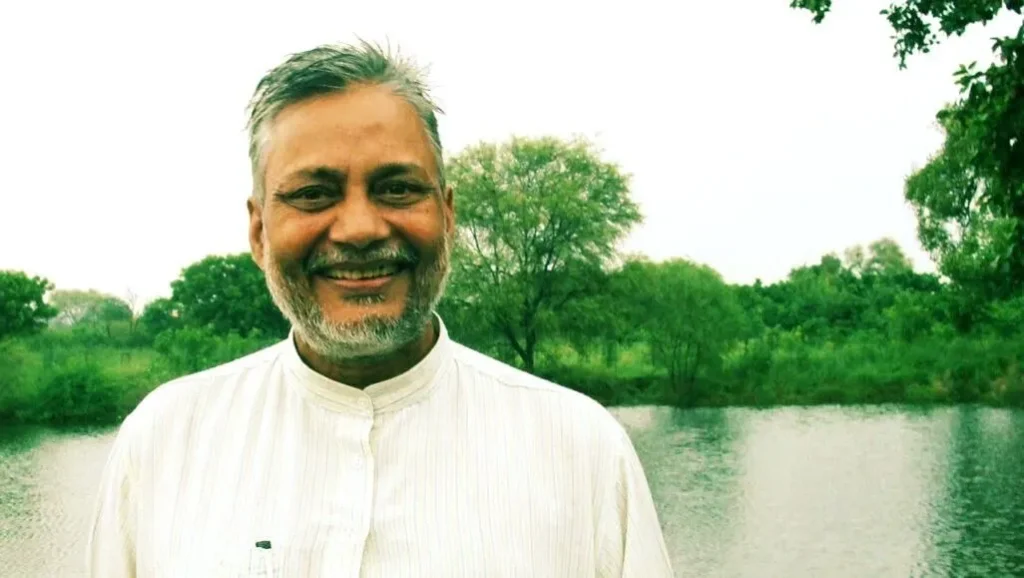The title “Waterman of India” recognizes individuals dedicated to solving water problems and rejuvenating rivers. Their efforts in water harvesting and conservation transform drought-prone areas, improving lives and inspiring others to protect this essential resource.

Rajendra Singh: The Waterman of India
Rajendra Singh, hailing from Rajasthan, is celebrated for his exceptional work in water conservation. Known as the “Waterman of India,” he revived dry rivers like Arvari and helped thousands of villages manage water through traditional techniques like johads (earthen check dams). Singh’s NGO, Tarun Bharat Sangh, has earned him prestigious awards, including the Ramon Magsaysay Award in 2001 and the Stockholm Water Prize in 2015.
Early Life
Born on August 6, 1959, in Daula, Uttar Pradesh, Rajendra Singh was the eldest of seven siblings. Raised on his family’s farmland, he was drawn to community service from a young age, participating in village improvement projects and tackling social issues. His passion for social work deepened during his high school years under the guidance of influential mentors.
Journey into Water Conservation
Initially starting in government service, Singh left in 1984, disheartened by its limitations. He sold his belongings and relocated to Alwar, Rajasthan, where he began addressing water scarcity alongside villagers.
Reviving Traditional Water Techniques
Singh focused on restoring traditional water management systems. His efforts began in Bhikampura village, where he and locals repaired an old johad. With the arrival of monsoon rains, the structure successfully collected water, replenishing nearby wells that had been dry for years. This success led to the construction of thousands of johads, eventually reviving rivers like Arvari, Ruparel, and Sarsa, which had been lifeless for decades.
Challenges and Achievements
Singh faced opposition from mining operations that drained water resources. He led legal battles, culminating in a ban on mining in the Aravalli Hills in 1992. Under his leadership, Tarun Bharat Sangh has built over 8,600 water structures, benefiting more than 1,000 villages in Rajasthan and beyond.
Expanding the Mission
The success of Singh’s initiatives extended to states like Madhya Pradesh, Gujarat, and Andhra Pradesh. He also established the Pani Panchayat (Water Parliament) to promote awareness about water conservation and sustainable practices.
Awards and Recognition
Rajendra Singh’s groundbreaking work has been widely recognized:
- Ramon Magsaysay Award (2001) for water management leadership.
- Jamnalal Bajaj Award (2005) for rural development through science and technology.
- Stockholm Water Prize (2015), often referred to as the “Nobel Prize for Water.”
- Named one of the “50 people who could save the planet” by The Guardian in 2008.
A Legacy of Transformation
Rajendra Singh’s efforts have rejuvenated arid regions, restored rivers, and empowered communities to sustainably manage water resources. His journey serves as an inspiration for millions to value and protect water, a precious gift of nature.
